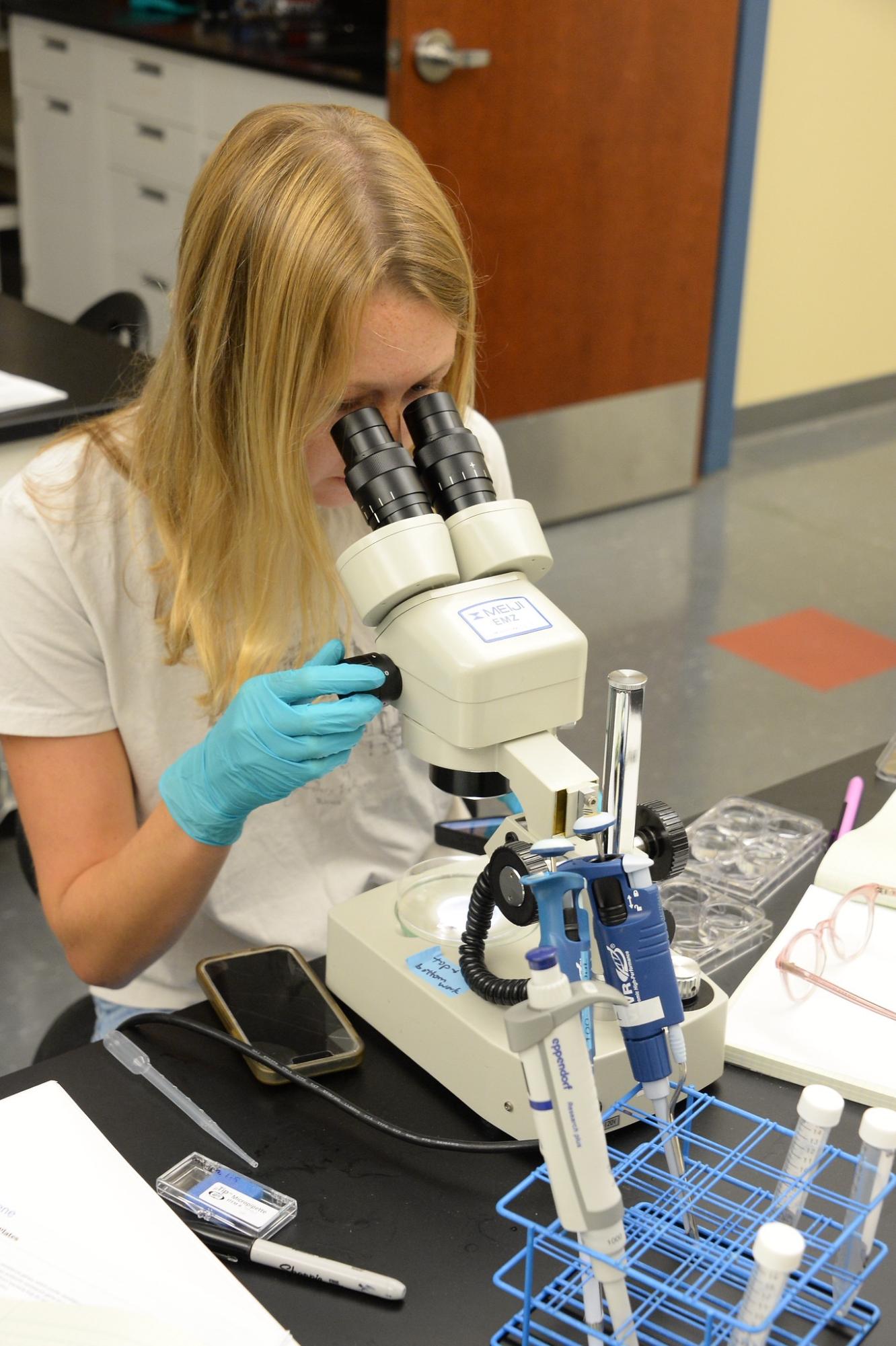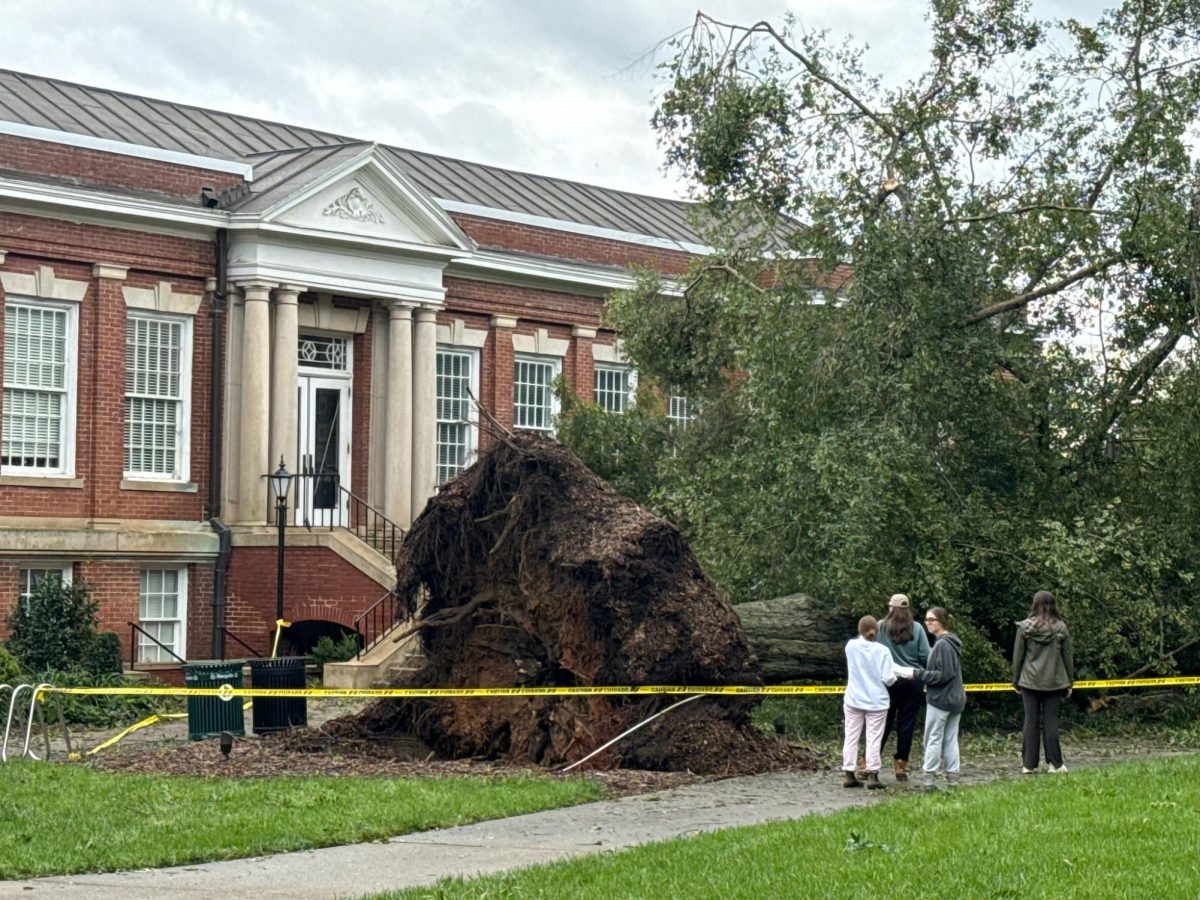With the unpredictability of artificial intelligence and its future, some people have begun to worry about their future career plans. Rylee Ashley ‘28 experienced first hand how implementing AI in the workplace can lead to a frightening future.
After working for Spartanburg Regional Hospital for 10 months, Ashley was informed that she would be let go due to recent AI developments. She was told over the phone that at the end of August, her employment as a medical scribe would be terminated.
“Everyone that I worked with in the ER received the same call,” Ashley said. “They said they would try and find alternative places for us to apply to, but there aren’t any local hospitals that need emergency room scribes anymore.”
Ashley’s duties as a medical scribe included going into patient rooms in the ER with the doctors and documenting patient information, such as symptoms and medical history. Ashley, along with many other medical scribes, thoroughly enjoyed her job and the experience she got from working firsthand with patients.
This was not completely out of the blue. Ashley noticed that the doctors began to use AI technology during her employment and had a feeling that this change would occur at some point, but not so soon. She was not a fan of the utilization of AI before, and is less of a fan now that she’s been personally affected. She does not believe that AI should be able to replace all of the requirements that are expected of doctors.
“I think someone still needs to be there to check over the information,” Ashley said. “It could be a liability if the app crashes and does things wrong, you can put people’s lives at risk.”
Ashley and her coworkers are not the only people to experience this. She mentioned all hospitals under the Spartanburg Regional Healthcare system underwent the same changes. This includes Pelham, Mary Black, Union and Cherokee medical systems.
The system that was implemented is an app downloaded onto a doctor’s phone which records all the patient information and takes notes during a medical visit. The doctors are then supposed to go over those notes on each chart to ensure they are correct. The use of AI can be more cost effective than paying real people real salaries and there are less people in the ER, which saves space.
However, some doctors, at Spartanburg Regional specifically, seem to be less than fans of the app because it cannot pick up on a sarcastic tone or irrelevant information, which could lead to messy charts with ramblings.
Further, some patients prefer to do their own charts or have a medical scribe take down the information, but they do not have that ability anymore at local Spartanburg hospitals. However, not all departments will be using artificial intelligence. Nurses in particular will still be in high demand due to the one on one care and comfort they provide patients that AI cannot replicate yet.
Though she was just a scribe, Ashley mentioned that other medical specialties are seeing the harmful effects of AI as well as some departments, like radiology, are trying to take similar steps toward the world of AI.
“I think AI could take over hospitals in certain areas. I know radiology is in the process of trying to get AI to read x-rays and scans like that which eliminates a whole medical subfield. These people (x-ray technicians) went to medical school for eight plus years just for a computer to take their job, it’s scary,” Ashley said.
While nothing is known for certain about the advancement of AI and how it could impact jobs, Ashley mentioned how scary it is to see changes starting now and worries for her future.
She plans on attending medical school after graduation and believes that her scribe job was a good way to get a foot in the door for medical experience and patient hours. Now she believes it’s going to be harder to find an internship or other medical field job that doesn’t require prior certification and won’t be stolen by artificial intelligence.
Many report on the harmful effects of AI on art-based jobs, but it could be important to remember that every field could be impacted. The future of AI is truly unknown.




